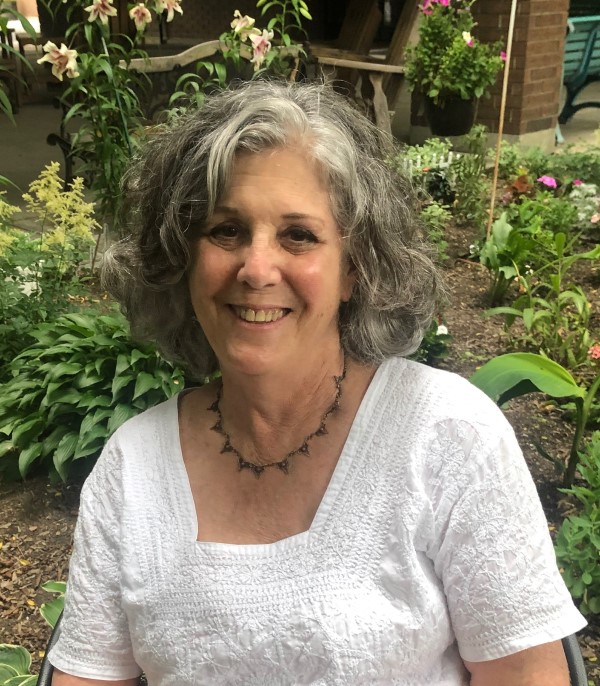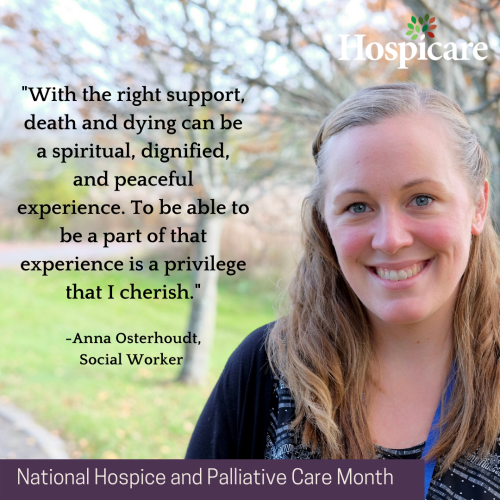By Jane Baker Segelken, MA, MSW, and part of the Social Work team at Hospicare & Palliative Care Services

One thing that’s important to remember when thinking about advanced care planning is that it’s not just about end of life. In reality, it’s about how you’re living now. It’s about making sure everyone is ready to make decisions on your behalf when you’re unable to communicate — even temporarily while you’re recovering from an accident, surgery, or debilitating illness.
Several years ago, 83-year-old Ella fell and severely broke her shoulder. In the hospital and loaded up on pain medication, the usually cognitively sharp Ella was unable to think clearly. She couldn’t understand the surgical options being presented to her and couldn’t communicate which surgery she preferred. Fortunately, she had talked to her legally appointed health care proxy about many different things including how important quality of life was to her. That information, including knowing something about Ella’s hobbies and interests, allowed her agent to advocate for an extensive surgery that allowed Ella to resume all her activities, including driving. Had the proxy not been informed and kept up to date on Ella’s wishes as they evolved, the proxy might have allowed the physicians to perform a lesser surgery that would have severely limited the very active Ella’s independence.
There is no question conversations about our advanced care wishes are hard. Making decisions about future scenarios isn’t easy. It’s scary for us to think about our own misery and it’s daunting for our proxy to consider our suffering. But the talks are totally worth it. In fact, doing so will minimize our distress and give our agent the confidence they are making the right decisions — some of the hardest he or she will ever have to do.
Once you’ve identified the person you want to represent your wishes — someone who can make difficult decisions, can advocate for you, and who knows your values — it’s time to have “The Talk.”
Talking about your advanced care wishes
There is never the perfect moment to begin the conversation. And it may happen over time — in several conversations rather than one. But a good way to start with the person you’ve selected as your agent is to frame it by saying, “I’d like to talk to you about how I want to live.”
- Be direct.
- Talk about a situation that someone else, such as a friend or relative, has experienced.
- Speak about your values — what makes your life worth living?
- Discuss what brings you comfort and joy — your interests, likes, and dislikes.
- Talk about what health, sickness, and death mean to you.
- Talk about pain. Do you want to be able to communicate while being treated for pain even if it means you might still be uncomfortable? Or would you rather be sedated and pain free?
- Consider life support treatments and reveal where your views on them come from. Share under what situations you would want to be on life support — such as a device to help you breathe, nutrition and hydration through a tube, CPR, etc. — and when you might want nothing to be done.
- Make sure to address your religious beliefs, if any, regarding healthcare decisions.
Part of this discussion should also address care at the end of your life. Things to consider include:
- Do you want a religious or spiritual leader to visit with you?
- Do you want music, candles, incense, and dim/bright light in the room? Specify the kind of music you like, the candle/incense aroma, and whether the light should be natural or artificial.
- Do you want to know when death is approaching so you can tie up loose ends and say goodbye to friends and family?
- Where do you want to die (hospital, hospice residence, at home, other)?
- Do you want to donate your organs? Are there any limitations?
As time goes by, especially if your health changes, review your advanced care planning wishes. When you’re young, every 10 years is a good benchmark. As you get older you may want to reevaluate even more frequently. Make sure your proxy, family, close friends, and your doctor know of any changes in your preferences.
Resources
The planning you do now will be a gift to your proxy, to those in your life to whom you matter, and to yourself.
- The Conversation Project: 6 Fun Games to Help You Talk About End-of-Life Care theconversationproject.org/tcp-blog/death-is-not-a-game-well-sometimes-it-is/
- Hospice Giving Foundation: Love Letters / Notes to My Family hospicegiving.org/resources/#NTMF
- Five Wishes: Guidelines and documents for preparing your advance care directives fivewishes.org/
Join Dr. Lucia Jander and the Hospicare & Palliative Care Services’ interdisciplinary team on March 15, from 5:30-7 for a webinar, Having the Conversations & Organizing Your Info. To register email jennifer@crcfl.net or call 607-272-0212.
*Jane Baker Segelken, MA, MSW, is part of the Social Work team at Hospicare & Palliative Care Services.

